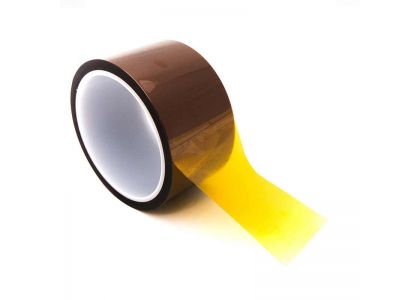
In wave soldering, PCBs are exposed to high-temperature solder waves that can damage delicate circuitry if not properly masked. Polyimide film tape for pcb masking is designed specifically to provide a reliable barrier that prevents solder from adhering to unwanted areas. Its excellent thermal resistance and conformability ensure that it adheres securely to complex PCB layouts, maintaining precise masking even under harsh conditions.
The quality of the masking tape is paramount in achieving optimal soldering results. Leading polyimide film tape manufacturers produce products that consistently meet stringent industry standards. Competitive polyimide film tape price points allow manufacturers to access high-performance materials without excessive cost. Moreover, the use of kapton tape soldering has become synonymous with reliable performance in high-temperature environments, thanks to its proven track record in protecting sensitive components.
Integrating advanced masking solutions into wave soldering lines not only improves the quality of solder joints but also increases overall production efficiency. Products under the category of polyimide tape applications have been optimized for easy handling and precise placement, reducing setup time and minimizing waste. In practice, the proper application of polyimide film tape for pcb masking ensures that the solder wave only contacts designated areas, thereby enhancing the accuracy and consistency of the soldering process.
Operators in high-volume electronics assembly lines have reported significant improvements after adopting advanced masking tapes. One notable example involved a manufacturer who switched to polyimide film tape for pcb masking and observed a substantial reduction in solder bridging and defect rates. Feedback from technicians emphasized the ease of use and durability of the tape, which remained effective throughout extended production runs.
Additionally, partnerships with reputable polyimide film tape manufacturers have enabled these companies to achieve a balance between quality and cost efficiency. The competitive polyimide film tape price of these products has made them a popular choice in markets where production volumes are high and quality standards are uncompromising.
To fully leverage the benefits of these advanced masking solutions, strict adherence to application best practices is essential. Thorough cleaning of PCB surfaces prior to tape application is critical to ensure a uniform bond. Controlled application techniques—such as using alignment tools and applying consistent pressure—help achieve a seamless masking layer that minimizes the risk of solder leakage. Regular training sessions for assembly line technicians on kapton tape soldering techniques further support the reliable use of these materials.
Periodic quality checks during production can help identify early signs of masking tape degradation, allowing for prompt corrective actions. This proactive approach not only maintains high soldering quality but also reduces rework and overall production costs.
The integration of advanced masking tapes in wave soldering processes offers numerous economic benefits. By reducing defects and enhancing solder joint quality, manufacturers can achieve higher yields and lower rework rates. The cost-effectiveness of materials like polyimide film tape for pcb masking—combined with their proven performance—translates into significant savings over time. Enhanced process efficiency and reduced downtime further contribute to improved profitability in competitive markets.
As the electronics industry continues to evolve, further advancements in masking tape technology are expected. Future developments may include smart masking solutions capable of real-time performance monitoring and adaptive adhesion properties. These innovations could further enhance the precision and efficiency of wave soldering processes, ensuring that high-quality PCB assemblies remain the industry norm.
Manufacturers who invest in the latest polyimide tape applications and maintain strong partnerships with established suppliers will be well positioned to adopt these emerging technologies and sustain their competitive edge.